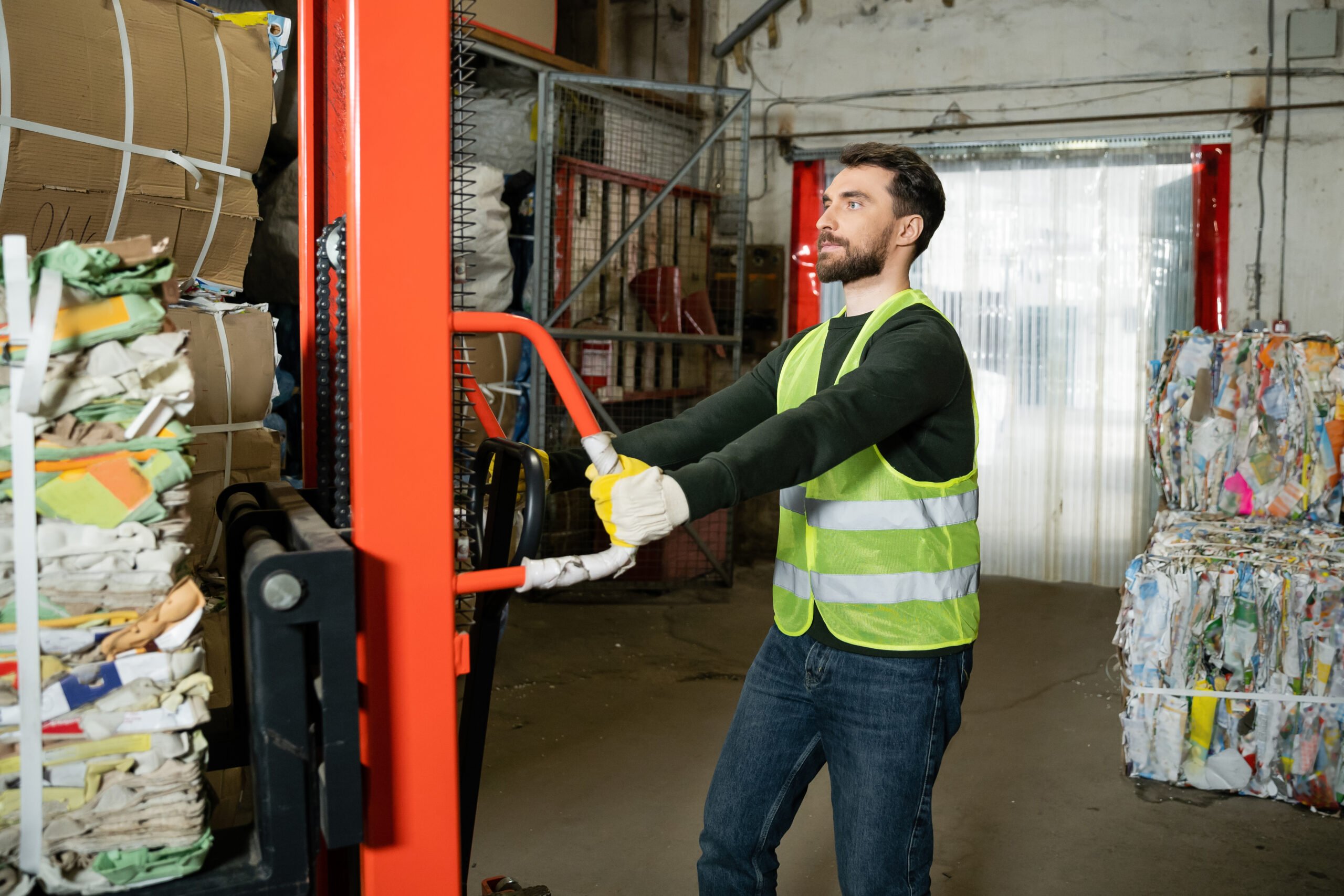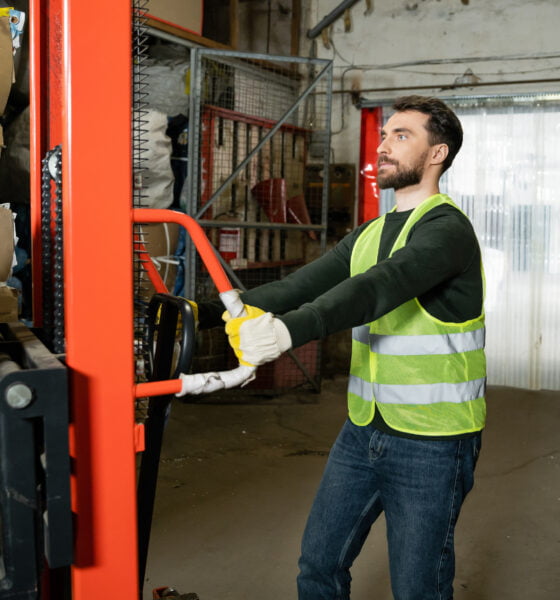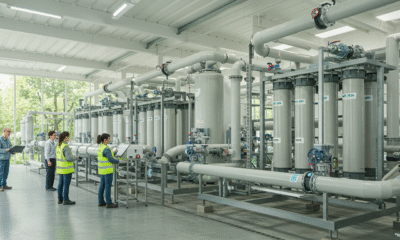The transportation industry is responsible for 28% of all greenhouse gas emissions. Global logistics companies recognize their impact on the planet and are trying to take new steps to lower their carbon footprint. One of the things that they are doing is investing in eco-friendlier equipment.
The transportation of heavy industrial machinery is proving to be a challenge in terms of planning an appropriate logistics process and minimizing its negative impact on the environment. The solutions and techniques outlined below can help organize transportation develop solutions that meet both requirements.
The specifics of industrial equipment transportation
The very name suggests that industrial machinery is heavy and bulky. Therefore, it is not hard to guess that transportation can cause problems. Thus, careful planning is necessary not only to physically move the equipment but also to do it in such a way that it does not suffer on the way. This is because, contrary to appearances, they are equipped with extremely delicate mechanisms, and any damage can equate to losses running into thousands of zlotys.
The carrier may encounter difficulties at every stage of the process, specifically during:
- loading – the equipment must be detached, loaded onto the target transport surface (e.g., a pallet or trailer), and then secured in such a way that it cannot move freely during the journey,
- transportation – if there is oversized equipment to be transported that requires a unique process, the first step is to take care of all the necessary paperwork, including obtaining permits for a specific means of transportation (usually a low-loader truck and a specialized trailer) within the allotted time,
- unloading should be as careful as loading and include not only removing the machine from the means of transport but also setting it up at the destination and preparing it for startup.
Given the complexity of the process of relocating industrial machinery, it may be a good idea to outsource this task to professionals who have experience in this and are able to deliver the cargo to its destination, complete all the formalities, and avoid damage. Such a task can be handled by, for example, AsstrA oversized cargo transportation.
How does the transportation of industrial equipment affect the environment?
Heavy industry contributes significantly to the problem of environmental pollution even when industrial machinery is in one place and simply performing its function as intended. When they need to be transported, the pollution footprint generated by the transport itself comes into play, which turns out to be insignificant. Why?
For logistical reasons, industrial equipment is often transported overland using road transportation. Although trucks emit much CO2 into the atmosphere, the levels are exceptionally high when such cargo is transported. This is influenced by the weight of the cargo, which is usually not negligible. Moreover, industrial machinery often means organizing oversized transport, which involves using a particular vehicle and frequently organizing a civilian or police pilotage. This, in turn, equates to the involvement of more cars in the transportation process and the emission of even more CO2. This is something logistics companies need to understand if they want to be greener.
What is green logistics?
Green logistics, or bringing green consciousness to the heart of the logistics sector, is an approach that defines the future of the industry. It allows companies to balance efficiency and ecology, seeking to optimize both environmentally and economically.
As in other areas, logistics operations can lead to adverse environmental consequences. These issues include, in particular, energy consumption and the choice of transportation modes, which can harm the planet—an ecological approach in logistics results in the design of transportation systems with environmental protection in mind. In addition, minimizing packaging and waste, controlling emissions and noise levels, and using renewable energy are steps to make the logistics industry more environmentally friendly.
How can green transportation be done in the context of heavy equipment?
Green road transport can be ensured by replacing traditional internal combustion trucks with vehicles equipped with an electric motor. In practice, such a solution has yet to be very successful in Europe. Zero-emission trucks still have too short a range and insufficient power to meet the challenge of transporting oversized cargo, which is industrial machinery.
However, if long-distance transportation is involved, arranging multimodal transportation using different means may be a good idea. Cost-effective transportation of heavy machinery can be helped, for example, by planning the process so that a significant part of the route goes by sea, which is now considered one of the most environmentally friendly. Admittedly, it will not be possible to avoid the need to cover the routes origin-port and port-destination by road, but it will help reduce the carbon footprint.
Proper route planning will also benefit the environment. Avoiding large urban centers will prevent sudden braking and starting, which can occur when moving through traffic jams. Maintaining a steady driving pace and following the other eco-driving rules will help reduce its harmful effects on the external environment. Proper training of drivers who handle this type of cargo will, therefore, prove helpful.
There is no denying that the relocation of industrial machinery is a complicated task for which a good plan is essential. By putting this task in the hands of professionals, you can avoid problems and additional costs—and, on top of that, save time since such companies already have developed scenarios for such situations.
What are the advantages of green logistics?
A green approach in logistics has numerous benefits for both businesses and the environment, which can be summarized as follows:
- Adopting green practices reduces activities that are harmful to the environment.
- Improved energy efficiency, waste reduction, and fuel savings enable companies to reduce operating costs.
- Companies focusing on green logistics practices build their reputation and image as responsible companies in the sector.
- More efficient and economical use of resources prevents waste and contributes to preserving natural reserves.
- Green strategies allow companies to compete more effectively in the industry, highlighting their innovation and social responsibility.
Why is green logistics necessary?
Green logistics enables companies to reduce their environmental impact and make the transportation industry greener. Moreover, energy efficiency and waste minimization allow companies to use their financial resources more consciously and sustainably.


 Environment12 months ago
Environment12 months agoAre Polymer Banknotes: an Eco-Friendly Trend or a Groundswell?

 Features11 months ago
Features11 months agoEco-Friendly Cryptocurrencies: Sustainable Investment Choices

 Features12 months ago
Features12 months agoEco-Friendly Crypto Traders Must Find the Right Exchange

 Energy11 months ago
Energy11 months agoThe Growing Role of Solar Panels in Ireland’s Energy Future






























